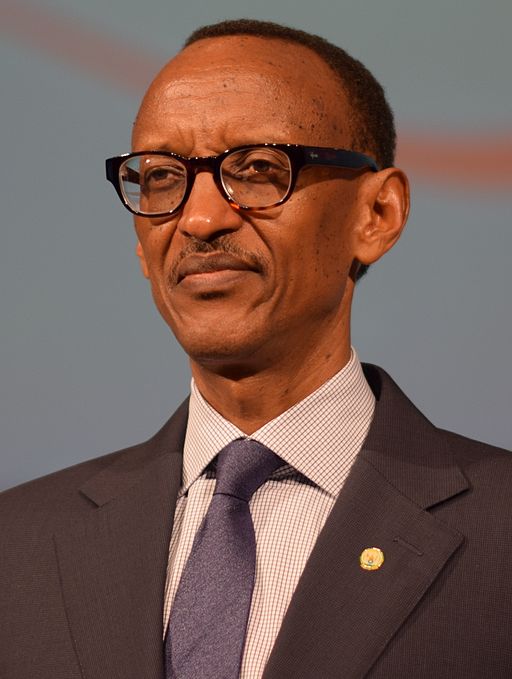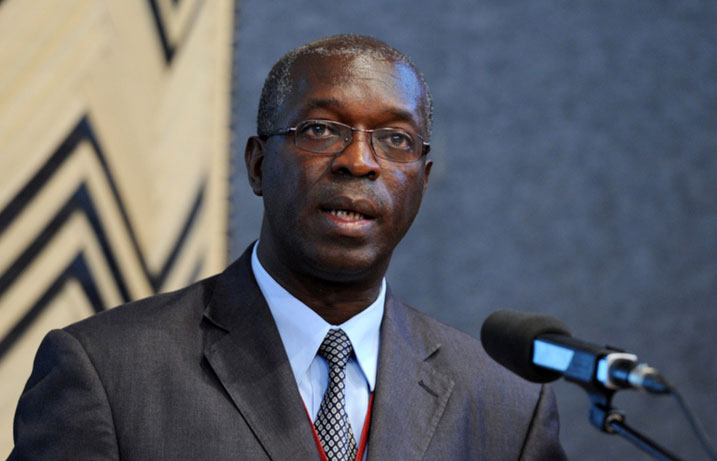|
|
|
|
In 1959, three years before independence from Belgium, the majority ethnic group, the Hutus, overthrew the ruling Tutsi king. Over the next several years, thousands of Tutsis were killed, and some 150,000 driven into exile in neighboring countries. The children of these exiles later formed a rebel group, the Rwandan Patriotic Front (RPF), and began a civil war in 1990. The war, along with several political and economic upheavals, exacerbated ethnic tensions, culminating in April 1994 in the genocide of roughly 800,000 Tutsis and moderate Hutus. The Tutsi rebels defeated the Hutu regime and ended the killing in July 1994, but approximately 2 million Hutu refugees - many fearing Tutsi retribution - fled to neighboring Burundi, Tanzania, Uganda, and the former Zaire. Since then, most of the refugees have returned to Rwanda, but about 10,000 that remain in the neighboring Democratic Republic of the Congo have formed an extremist insurgency bent on retaking Rwanda, much as the RPF tried in 1990. Despite substantial international assistance and political reforms - including Rwanda's first local elections in March 1999 and its first post-genocide presidential and legislative elections in August and September 2003, respectively - the country continues to struggle to boost investment and agricultural output, and ethnic reconciliation is complicated by the real and perceived Tutsi political dominance. Kigali's increasing centralization and intolerance of dissent, the nagging Hutu extremist insurgency across the border, and Rwandan involvement in two wars in recent years in the neighboring Democratic Republic of the Congo continue to hinder Rwanda's efforts to escape its bloody legacy.
|
|
|
|
|
Rwanda's president is elected by popular vote every seven years. Paul Kagame took office after his predecessor resigned in 2001, and has won two additional elections. Efforts are underway to amend the constitution to allow him to run for a third term.

Paul Kagame
President of Rwanda since April 2000

Anastase Murekezi,
Prime Minister of Rwanda since July 2014
Rwanda has a bicameral legislature, with a Senate and Chamber of Deputies. The Senate has 26 members, elected or appointed to 8-year terms. The Chamber of Deputies has 80 members, with 53 elected for 5-year terms due to proportional representation. 24 more are elected by provincial councils.
In a 2012 article, International Business Times called Rwanda "The only government in the world dominated by women." By 2011, 56% of Rwanda's Parliament seats were occupied by women.
Christian ministries operating
|
|
|
|
|
|
The legacy of the Rwandan Civil War cannot be overstated. Along with the estimated 500,000 to 1,000,000 slain Tutsi minority citizens, it's estimated that 100,000 to 250,000 women were systematically raped and many contracted AIDS as a result.
Rwanda has made great strides in the past 11 years but still has significant health challenges. One organization described its recovery as "among the most dramatic the world has seen in the last 50 years." Healthcare costs have been kept low by the government, but there is still fewer than one medical professional for every thousand citizens.
Rwanda is one of the world's least developed countries (#166 of 187 listed in the UN's Human Development Index). Electrical service is erratic, supplies and facilities at health centers are low and many of those killed during the genocide were doctors, nurses and other healthcare workers. About 60% of the nation lives in poverty, and the gross national income is estimated to be $1 per capita.
Life expectancy is 63.7 years in Rwanda, better than average for the countries in this region.
Malnutrition is the highest risk factor in Rwanda. HIV infection is on the decline but is still at about 2.9% of adults ages 15-49. It remains among the top 3 causes of death.
Rwanda is in Central Africa, east of the DRC and north of Burundi
Both sides in the Rwandan Civil War were of majojrity Catholic adherence. There has been a significant shift in the country's religious demographic towards Protestant Christianity. Many Rwandans lack depth in their faith: some equate the God of the Bible with the traditional Rwandan god Imana.
| GMO OMs in Rwanda |
| Eraste Gasarasi |
| David Ntawuyirushintege |
|
|
|
|
|
GMO's Stats on Rwanda
In 2015, Global Media Outreach registered 504,411 Gospel Visits, 76,552 indicated decisions, and 39,196 discipleship visits from Rwanda. We have two Online Missionaries from Rwanda.
Jesus saved my life at early age when I was going to be burnt when I got to know him I felt he has purpose with me I love to belong to him with all my heart but sometimes I fall and really feel bad.
— Rwandan contact Ashaba
|
|
|
|
|
|
Member Prayer Requests/Praise Report from last week
Barbara:
- Returns to Hawaii June 29. Will be seeing cardiologist July 3rd ti find out what may help her heart situation. Her daughter, who is a nurse, RN, believes she may need pacemaker.
Deborah:
- Continue to pray for her arthritis and healthy living changes
Janis:
- Continue to pray for her recovery from the procedure to remove breast cancer cells.
Frank:
- Continue to pray for Emily and Luke
Mike:
- Continue to pray for Emily and Luke
|
|